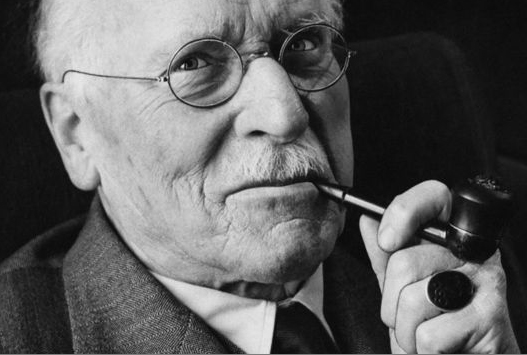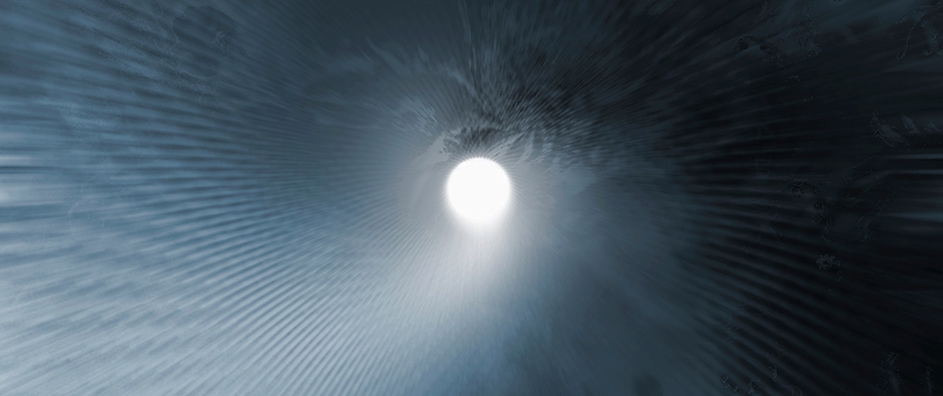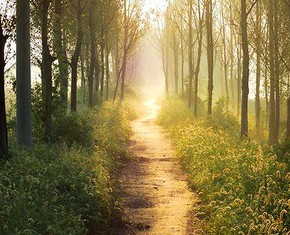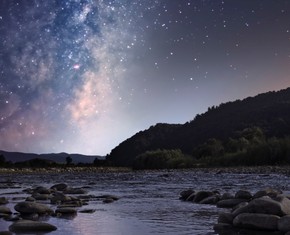The views expressed in our content reflect individual perspectives and do not represent the authoritative views of the Baha'i Faith.
…death is an important interest, especially to an aging person. A categorical question is being put to him, and he is under an obligation to answer it. – Jung
The unconscious psyche believes in life after death. – Jung
And now concerning thy question regarding the soul of man and its survival after death. Know thou of a truth that the soul, after its separation from the body, will continue to progress until it attaineth the presence of God, in a state and condition which neither the revolution of ages and centuries, nor the changes and chances of this world, can alter. It will endure as long as the Kingdom of God, His sovereignty, His dominion and power will endure. It will manifest the signs of God and His attributes, and will reveal His loving kindness and bounty. – Baha’u’llah, Gleanings from the Writings of Baha’u’llah, p. 155.

Carl Jung
After suffering a major heart attack in Switzerland in 1944, Carl Jung–the pioneering psychologist and philosopher who thought and wrote so much about death–had a near-death experience himself. Here’s an excerpt about his experience from Jung’s autobiography, Memories, Dreams, Reflections:
The beginning of 1944 I broke my foot, and this misadventure was followed by a heart attack. In a state of unconsciousness, I experienced deliriums and visions which must have begun when I hung on the edge of death and was being given oxygen and camphor injections. The images were so tremendous that I myself concluded that I was close to death. My nurse afterward told me: “It was as if you were surrounded by a bright glow.”
That was a phenomenon she had sometimes observed in the dying, she added. I had reached the outermost limit, and do not know whether I was in a dream or an ecstasy. At any rate, extremely strange things began to happen to me.
It seemed to me that I was high up in space. Far below I saw the globe of the Earth, bathed in a gloriously blue light. I saw the deep blue sea and the continents. Far below my feet lay Ceylon, and in the distance ahead of me the subcontinent of India. My field of vision did not include the whole Earth, but its global shape was plainly distinguishable and its outlines shone with a silvery gleam through that wonderful blue light. In many places the globe seemed colored, or spotted dark green like oxidized silver. Far away to the left lay a broad expanse – the reddish-yellow desert of Arabia; it was as though the silver of the Earth had there assumed a reddish-gold hue. Then came the Red Sea, and far, far back – as if in the upper left of a map – I could just make out a bit of the Mediterranean. My gaze was directed chiefly toward that. Everything else appeared indistinct. I could also see the snow-covered Himalayas, but in that direction it was foggy or cloudy. I did not look to the right at all. I knew that I was on the point of departing from the Earth.
Later I discovered how high in space one would have to be to have so extensive a view – approximately a thousand miles! The sight of the Earth from this height was the most glorious thing I had ever seen…
This experience gave me a feeling of extreme poverty, but at the same time of great fullness. There was no longer anything I wanted or desired. I existed in an objective form; I was what I had been and lived. At first the sense of annihilation predominated, of having been stripped or pillaged; but suddenly that became of no consequence.
We shy away from the word “eternal,” but I can describe the experience only as the ecstasy of a non-temporal state in which present, past, and future are one.
Jung admits that we cannot completely understand death, the greatest human mystery. Death, so far beyond our intellectual comprehension, requires that we engage our souls. It demands a leap of faith. It challenges us to lay claim to something unknown and unknowable. It asks us to live into the great adventure ahead of us. Jung said:
Not to have done so is a vital loss. For the question… is the age-old heritage of humanity: an archetype, rich in secret life, which seeks to add itself to our own individual life in order to make it whole.
The Baha’i teachings point out that death asks us to become more self-aware, to develop a mystical consciousness, to see beyond the veils of the material world:
The bestowals of God which are manifest in all phenomenal life are sometimes hidden by intervening veils of mental and mortal vision which render man spiritually blind and incapable, but when those scales are removed and the veils rent asunder, then the great signs of God will become visible, and he will witness the eternal light filling the world. – Abdu’l-Baha, The Promulgation of Universal Peace, p. 90.
In his final interview with BBC News in 1959, the reporter asked Dr. Jung if he believed that life went on after the death of the body. “I don’t believe,” Jung said emphatically, remembering own near-death experience. “I know!”
















Comments
Sign in or create an account
Continue with Googleor